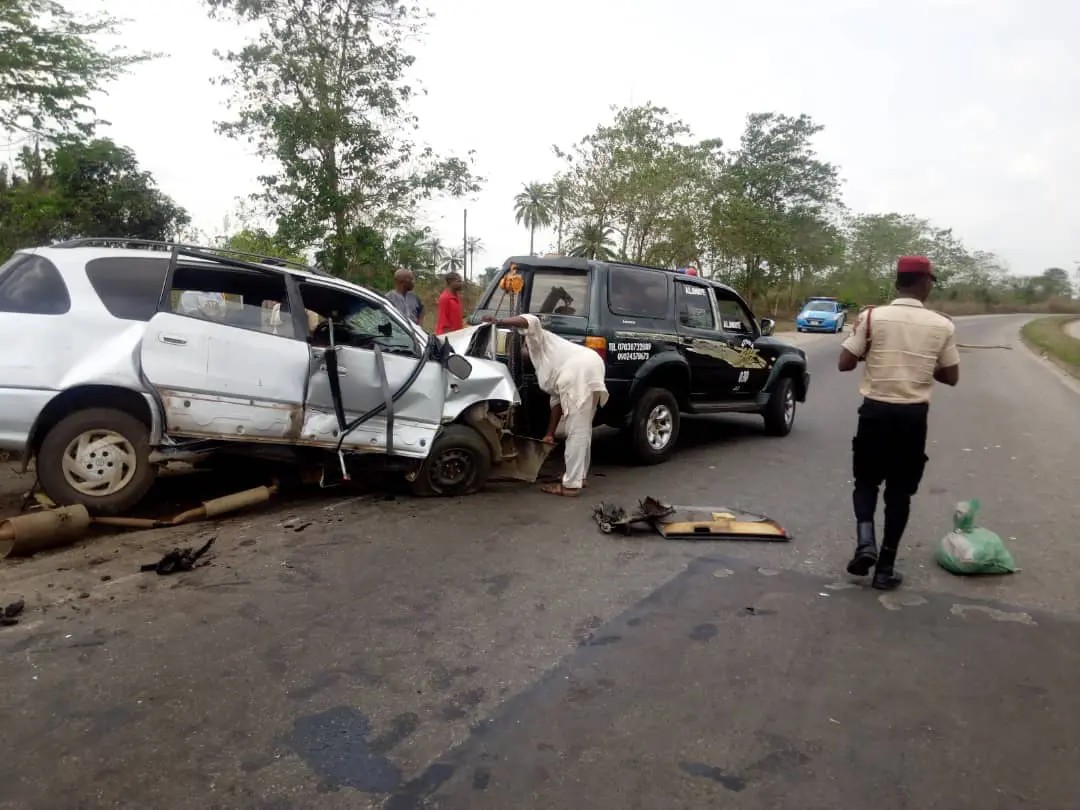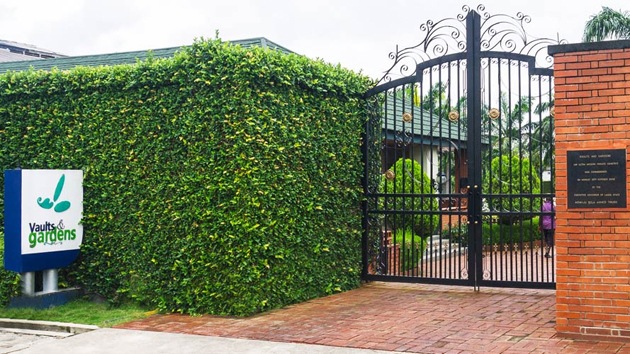
In chaotic cities nationwide, dying is just as risky and more expensive as living. And for the majority that unfortunately die wretched, the cost of cemetery spaces are competing with those of residential apartments. The alternative is public burial grounds that give no guarantee of finding the remains weeks after interment! CHINEDUM UWAEGBULAM and VICTOR GBONEGUN report that the cosmopolitan cities are paying for decades of poor urban and regional planning, coupled with the undercurrent disregard for both the living and the dead.
Gbenga Martins has been angling to find a resting place for his dad, who died six months ago. Martins’ frantic search took him to Atan, Ikoyi, and Victoria cemeteries. The bills were outlandish and beyond the reach of the family.
For his eternal rest, the family had to settle for a cemetery outside the city, where burial plots are still relatively affordable but too crowded for comfort. Therein, plots are makeshift. They are recycled to become available again after burials!
“There is really no consideration for us coming back to memorials to see the tomb of our beloved. It was like throwing away our loved one to dogs. It was eerie news to my ears. When I thought about it, I wept bitterly,” Martins said.
Martins’ experience is not any different from the encounter of many in cosmopolitan cities like Lagos. In those major cities nationwide, prices of burial plots are rising and becoming unaffordable to give the departed a befitting place of rest.
From Lagos to Kano, the property bubble in Nigeria is catching up with people, even in death, as the growing populations are competing with the dead for land, driving up real estate costs across the country.
Cemeteries are full, unkempt
Currently, cemeteries are scrambling to create more spaces, as they are running out of graveyards due to increasing demand. In parts of town where a burial plot is still available, the cost has, in some cases, more than tripled in less than 24 months.
Culturally, cemeteries are important and a major artefact to well-planned cities all over the world. Their value or roles transcend being places for burying the dead, as it could constitute part of the greens, buffer or recreational land use.
Despite the shortage of gravesites, most of the existing cemeteries in major locations are unkempt. The Guardian’s recent visit to Atan, Matori, Abari, and even larger section of Ikoyi cemeteries shows absolute neglect, whereas a cemetery is meant to be a reserved place, where the remains of the dead are buried in fulfilment of the holy writ that: “Ye are dust and dust shall ye return”.
Unfortunately, most graves of these public cemeteries are overfilled and the sand that is supposed to cover the remains is never available. Thus, people are confronted with a heavy stench oozing out from newly buried corpses.
Only a few private ones like the Victoria Court Cemetery (VCC) in Ibeju Lekki, now known as Vaults and Gardens (VCC- Mayfair) and Ikoyi Cemetery, are enjoying a measure of maintenance and decorum. Many others are allowed to degenerate without expansion or control, while the operators fleece the bereaved of their hard-earned money.
Specifically in Lagos, some of them constitute environmental nuisance and haven for miscreants. For instance, Atan Cemetery covering about 25 hectares of land and one of the oldest cemeteries of its kind in Nigeria has not been expanded over the years. Located at Moore Road, Yaba, Lagos, this public cemetery is the final resting place for many Nigerians and foreigners alike. British Colonialists built it in 1868.
The facility has a portion reserved for the British Government and was maintained by the Commonwealth Office for the burial of Nigerian soldiers who died in the service of the British Crown.
The cemetery also contains the largest concentration of the Second World War II graves in Nigeria, numbering about 411. Although the number of available grave plots cannot be ascertained, it is broken into sections, with one being for ‘all-comers’ and the other reserved for private use and the rich. There are also plots for small budgets.
Many existing cemeteries, especially the public designated ones are already congested thereby creating stiff competition for the few existing spaces as private sector investors are taking advantage of the development. But the private cemeteries too, are strictly for the moneybags who can afford the expensive price.
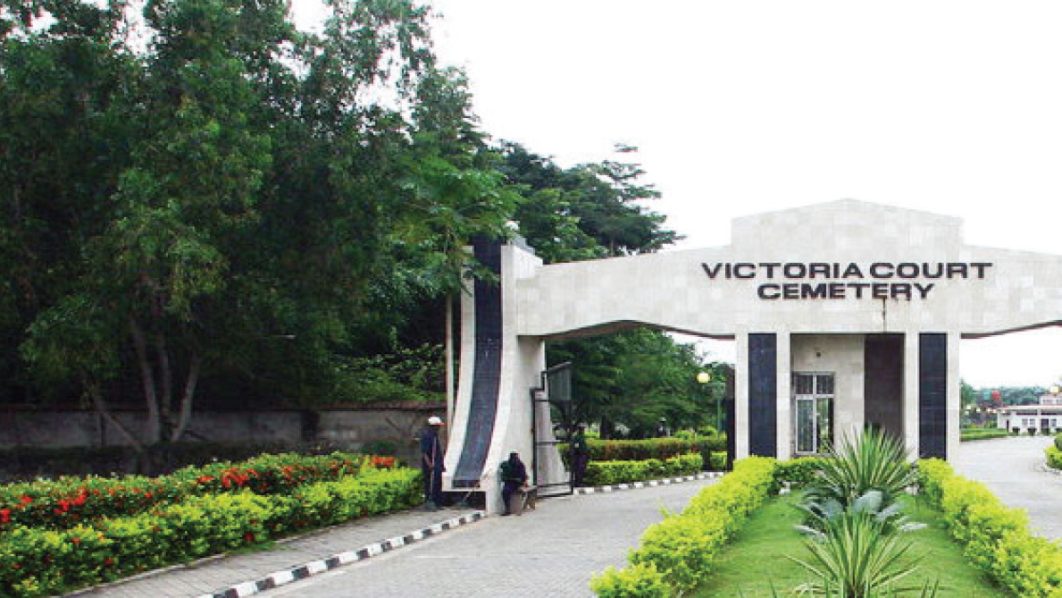
Over the past decades, governments at the state, local and federal levels have been inertia on the need to cater for the dead through the creation of national cemeteries.
Decent burial is not for the poor!
The Guardian gathered that the increase in prices of burial plots is almost equivalent to the land prices in some areas. The alternative is for families in major cities to buy land in the outskirts to bury their loved ones, or transport the dead to home states to save cost of mortuary and other logistics.
A decent burial plot in Ikoyi Vaults, run by Ebony Casket Ventures, which is well maintained and manned by security personnel costs more than a year’s salary of a graduate or a studio apartment in Ikoyi and Victoria Island.
The price of a spot six feet under at Ikoyi Vaults and Gardens is about N3.2 million, while in Ebony Vaults Ikoyi, Basic Single Vault cost N12.5 million; basic double vault is N22 million, and classic vault, N25 million and premium vault N35 million, which is equivalent to buying a house in Surulere or rent an apartment in Ikoyi.
Apart from paying for the tomb, families may also incur expenses on the slab and bricks, ranging from N750,000 to N1.7 million.
The public section is almost rundown and overgrown with weeds due to mismanagement. Before now, one Chamber Vault for the normal vault category goes for N200, 000 and three Chamber Vaults have a price tag of N250,000.
The Special Vault with tiling for One Chamber Vault goes for N500,000; three Chamber Vault goes for N600,000, while the three Chamber Vault category with gate, tilling and engraving of the deceased particulars goes for N1,000,000.

In Atan cemetery located at Ebute Metta, an attendant, who pleaded anonymity said: “There are different categories and prices depending on the location and the design of the tombstone. The three chambers go for N400,000 and are meant for three people. Those that want locations that are open may pay more.”
For instance, the price for a single burial plot that was previously N200,000 now goes for N300, 000, while the double chamber vault is as high as N400,000 or N500,000 per lot, and depending on the location.
Also, in Ojodu-Berger, Lagos, a plot of land is between N10 million and N30 million per plot depending on how strategically located the land. In Ikoyi, land prices can be as high as N150,333 per square metre, while in Yaba, prices can be as high as N75,655 per square metre.
For the private cemeteries, the price starts from N12 million per burial plot and could be higher than N35 million. At a particular private cemetery in Ojodu/Berger, the operators are offering single, double and family vaults between N5 million for single-use vaults and N7 million for double chamber vaults. There are also provisions for three to six chambers, providing the option for family members to be interred together in the same plot.
Stakeholders’ concerns
The dearth of cemeteries has become worrisome to estate surveyors and urban planners, apart from the existing ones scattered nationwide, the various tiers of government have not shown concerns for cemeteries.
“Burial plots are land and if prices of land are increasing in an area, burial plots will increase too. Moreover, prices are a product of demand and supply, so if the demand for burial plots continues to increase, while the supply does not increase correspondingly, the price will definitely go up”, according to a fellow of the Nigerian Institute of Estate Surveyors and Valuers (NIESV), Kola Akomolede.
For the former NIESV president, Bode Adediji, “Burial plots as dedicated burial grounds constitute a special land use, whose profile is fundamentally different from any other form of land usages in both rural and urban centres due to cultural, regulatory and spiritual reasons.
“Burial plots in dedicated burial grounds constitute a special land use, whose profile is fundamentally different from any other form of land usages in both rural and urban centres, due to cultural, regulatory and spiritual reasons.
“However, the principle of demand and supply remains sacrosanct in analysing all the determinants of burial plot prices in any location. For example, where dedicated burial grounds are in short supply and there is an increase in demand due to the high rate of death and burials as recorded during the Covid-19 Pandemic, then burial plot prices would rise.”
Adediji named the security issue as a crucial factor that makes people prefer to bury their loved ones in locations where the dead body can be preserved and protected for a long period of time, if possible from generation to generation.
He explained that branding of burial locations has become a vogue and made certain burial plots in locations categorised as prestigious.
“This will command special prices as you find in other types of products. Where a society is also becoming increasingly affluent, the prices people can afford to pay for burial plots begin to rise as compared to where there is a sharp decline in societal prosperity.
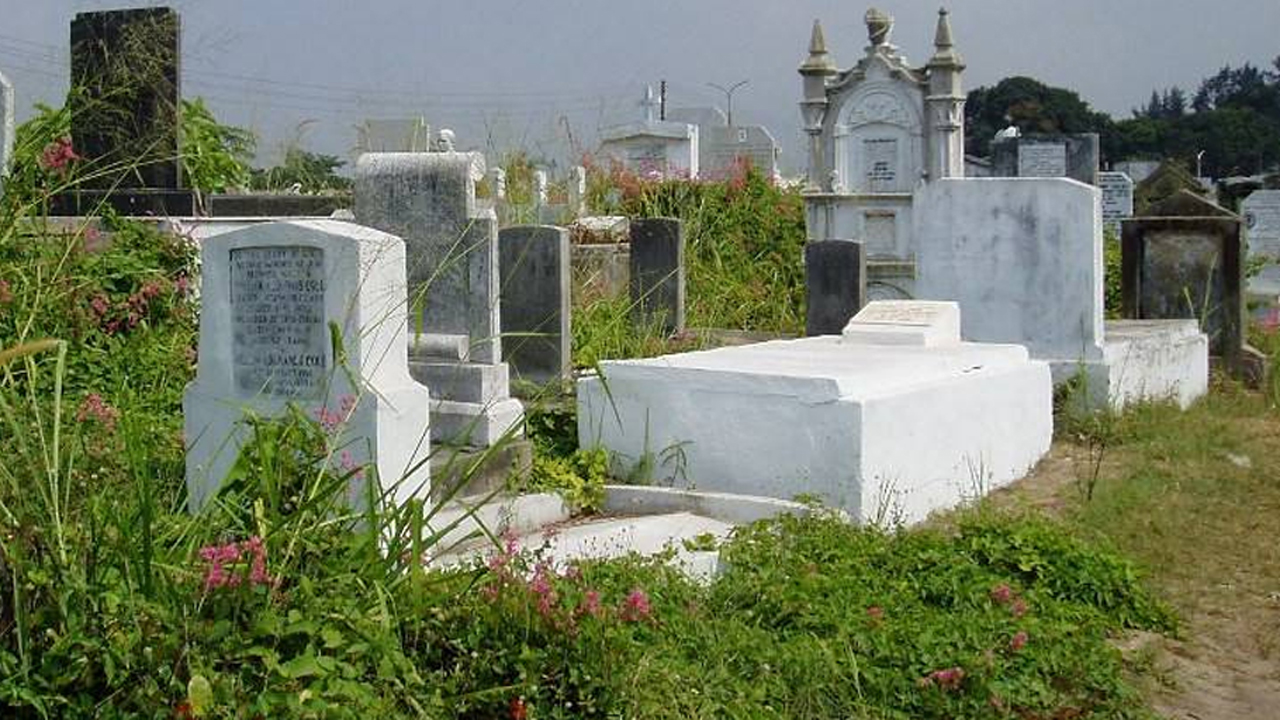
Adediji urged the government and private sector institutions like churches and mosques to make provisions for the growth and development of dedicated burial grounds in all parts of major cities to confront the crisis of escalation in the prices, “since government may not be interested or capable of extending the longevity pattern of its people through a radically improved health care delivery system.”
Akomolede, who was a former president, International Real Estate Federation (FIABCI), Nigeria, said the solution is for more cemeteries to be established for future use because people will continue to die and create demand for burial plots.
“Government should continue to establish more public cemeteries and also encourage the private sector to do the same. This will increase the supply and make the prices more competitive,” he said.
The President, Association of Town Planning Consultants of Nigeria (ATOPCON), Muyiwa Adelu, lamented that burial plots would continue to be scarce and prices will be on the increase because Nigeria cares less for the dead, especially in major city centres.
He said public cemeteries have become a shadow of themselves while in some places they do not even exist.
“They are filled up where they exist, yet, no designated new cemeteries. When you consider forces of demand and supply, the prices are bound to increase since we only think to bury when death occurs. Things can only happen when all efforts are geared towards planning for the dead through specific land allocation for this purpose in different zones of our cities.
“The prices will continue to soar. Sadly enough, people with enough wherewithal have already purchased vaults and reserved the same till they die, leaving the poor to be buried in overused sites like Atan cemetery, Matori cemetery and Sango cemetery in Ibadan. The situation is not different in other cities of Port Harcourt, Enugu and Kano,” Adelu said.
He expressed worries that most public cemeteries are a sad story of the Nigerian nation, adding that it is a reflection of who we are as a nation.
“A nation that fails to care for its retirees, what miracle do you expect when such people pass on? As a matter of urgency, state governments should take over the management of our public cemeteries. Yet, we still have people living around a place like Atan cemetery. If those living there are not evacuated, it may not be long before we face a terrible epidemic that will be difficult to contain.
“It is obvious local governments have no capacity to do anything; yet, the herculean task of humanity is put in their cares. To them, cemeteries become a money-spinner and many shallow graves are hurriedly dug. They can barely take a coffin and talk less of proper covering with sufficient sand.”
Adelu narrated his experience: “Some time ago, a little daughter of my close friend passed on. We sent people to make arrangements for a small grave for her remains in Atan cemetery. We were briefed everything was ready.
“As we moved the corpse to the cemetery, the attendant pleaded that the prepared grave had been sold because they had an emergency. So sad that the remains of the little girl were denied the right to a decent grave. That was more than 10 years ago. Now imagine the story today. The filled-up cemetery is still under intense use. It’s so sad indeed,” he said.
The ATOPCON president said governments should allocate more burial sites, and create more cemeteries and plan them. Adelu said: “We should, therefore, give dignity to the remains of the dead. The majority of public cemeteries are over 50 years old, especially in Lagos and Ibadan. Sadly, we create many housing estates; yet, we aren’t bothered about what happens when those in those estates die. Businessmen, who create them to make a profit, should champion the establishment of new cemeteries.”
Adelu said since public cemeteries in the cities cannot be expanded when filled up, they should be closed and constantly maintained. “We shouldn’t leave the maintenance with local councils under the current dispensation. They lacked the wherewithal to create and maintain. Don’t forget the dead are gone and their resting places should be treated well by the nation they served all their lives.”
He said governments should create more cemeteries and enact laws to encourage religious bodies to have well-developed and maintained affordable cemeteries on various centres, and advised that any religious camp should not be approved without a public cemetery.
“Federal Government should also make funds available from company taxes it collects, while state governments create laws to take a certain percentage of the personal income tax to cater for the cemeteries. The state governments should declare an emergency on the cemeteries to tackle the problems headlong. Again, the dead deserve to rest in peace,” he said.
Enugu-based town planner, Chime Ogbonna, said in many parts of Eastern Nigeria, the dead are buried within his/her hitherto living environment and not in the cemetery.
However, he said there are incidences, whereby it was difficult to find any vacant piece of land to bury a dead person within a particular family compound because graves of family members who died earlier had occupied all the available space.
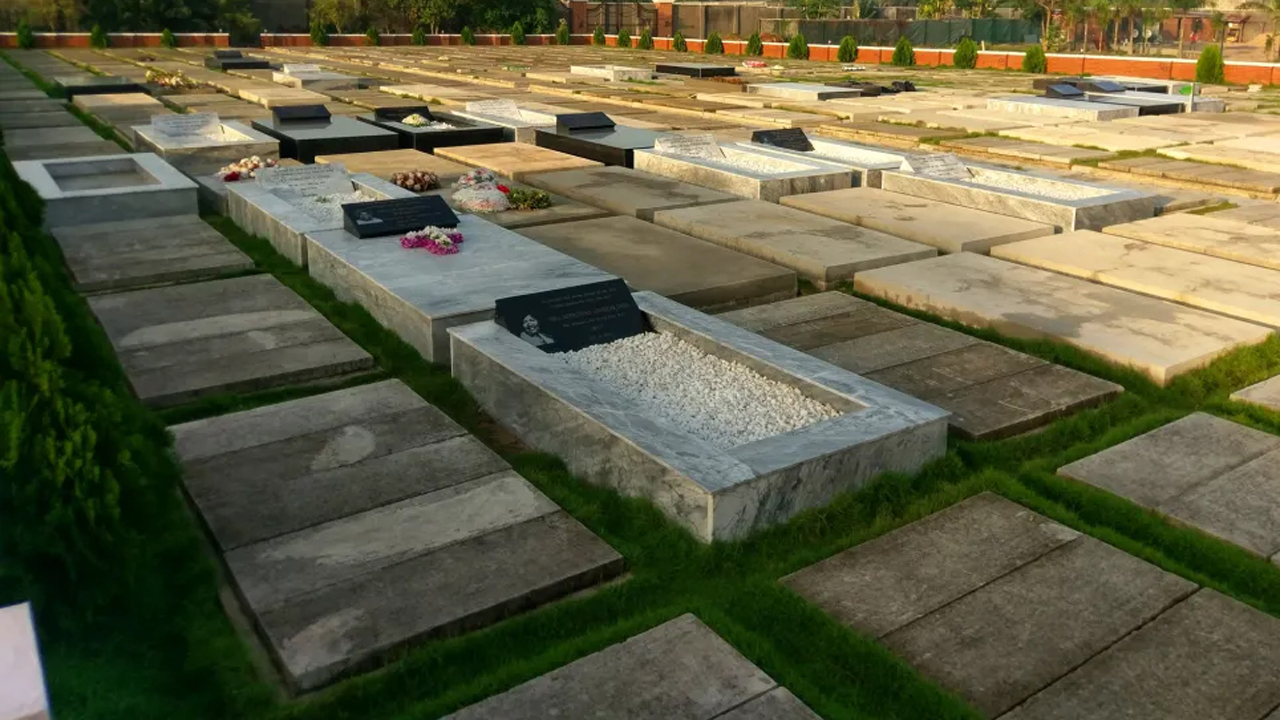
“One particular cemetery was reconverted to residential use, not by any government policy but by pressure on use of land – though, very un-cultural. These government cemeteries, usually in cities, serve the burial needs of strangers because by tradition, many easterners, especially the Igbos, are interred at home.”
Strategic planning and interventions
“The solution, especially in parts of the world where only the cemetery is the approved land use for burying the dead, is the adoption of the master plan approach in the design of human settlements.
“By this approach, every settlement is provided with a cemetery, sizable enough to accommodate its lost souls. It is important to note that every such planned settlement must have a physical boundary so that when it is fully developed, another settlement is started and in line with the regional development plan approved for the state,” he said.
Unless the master plan approach is adopted in the physical development of cities, every cemetery will suffer either a planned relocation or forced takeover as it may be regulated by the changing values of land.
The Federal Government does not need to establish national cemeteries, rather it should encourage the states to domesticate the 1992 Nigerian Urban and Regional Planning Law (now, an Act of the National Assembly) and use the sound provisions of that law in solving almost all that have to do with land use, including provision of enough resting places for the dead.”
The President, Nigerian Institute of Town Planners (NITP), Nathaniel Atebeji, who said excessive demand on the limited land makes prices competitive, premised lack of physical planning on the scarcity of burial land in towns and cities.
“When demand is overbearing above supply, a hike in price becomes inevitable. But above all, it is due to the inordinate and unwarranted value attached to the burial of the dead in some cultures. It is unfortunate to leave cemeteries weedy and unkempt. It should be regarded as a special land use within the city fabric, which must be maintained and serviced from time to time.
In towns and cities, the government should engage personnel to ensure cleanliness of burial grounds through vegetation control, ensuring that electricity and related infrastructure are provided. It should be well laid out and lit. Unkempt cemeteries can become locations, where security breaches can be perpetrated. They generate some oppressive syndromes in the living, especially the low-income people who may be worried about their final resting place.
He stated that land should be sought on the peripheries, where there may be less demand and encumbrances, while on the other hand; the use of vaults in which people can be buried in layers could be embarked upon.
The NITP President said the government should ensure cities and towns are planned and adequate land is appropriated for cemeteries and appropriately located.
“It all starts with planning of the town and ends in the review of the plans. Being a subject of overriding public interest, the government needs to expedite action in either allocating land for cemeteries or acquiring them. They should also be designed to avoid uncoordinated burial procedures on the land. It is very important to establish a national cemetery.
“Culturally, it is the final courtesy that we bequeath to a dead member of the community; and Nigerians want it celebrated, no matter how small it may be. Abuja already has sufficient land allocated in every district to cater for the dead after death,” he said.





